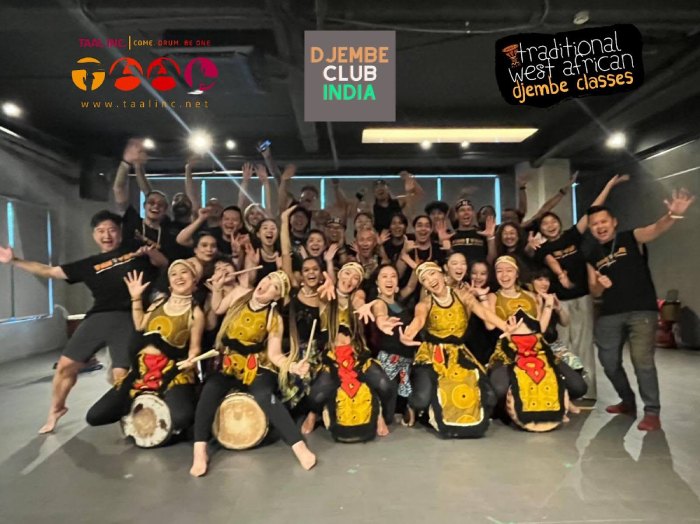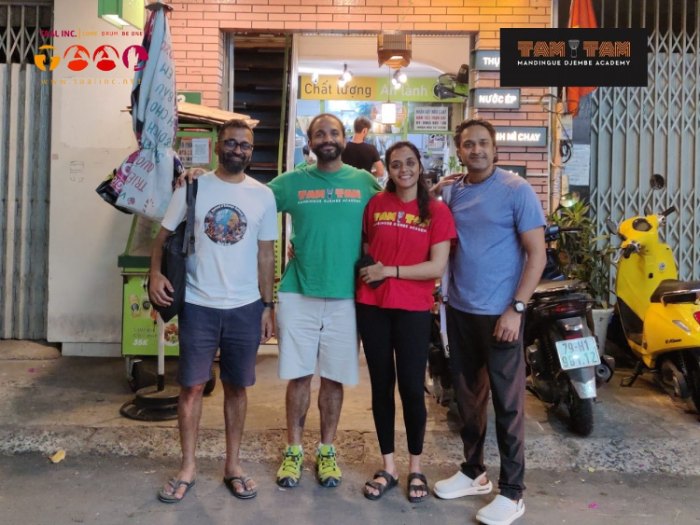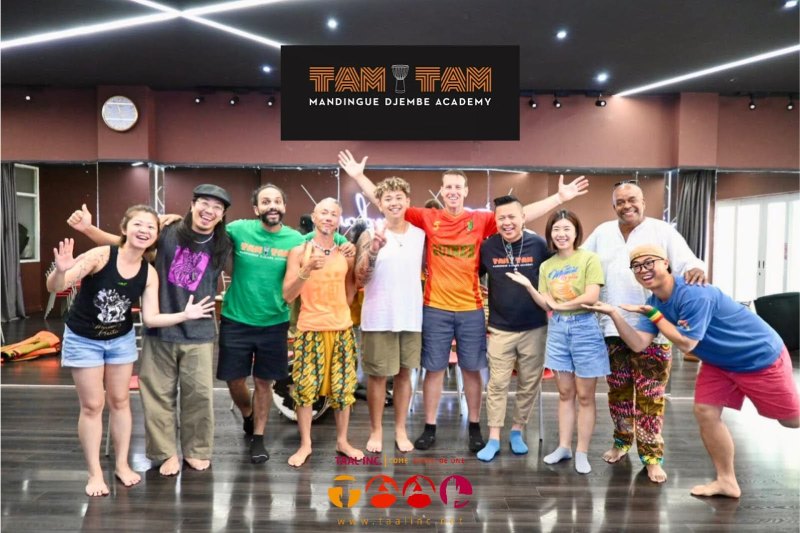Every year the teachers of Tam Tam Mandingue Djembe Academy (TTMDA) meet at a pre-decided location to reconnect and realign with the goals, objectives and mission that we have committed to. This year’s congregation was at Home Chi Minh city, Vietnam. What a beautiful and memorable two-week gathering of traditional West African Djembe enthusiasts it was.
This West African percussion workshop was divided into two parts. The first week was where we would focus on the traditional West African Djembe rhythms as taught by the late Grandmaster Mamady Keita and week two was an intensive group drumming and dancing activity focussed on making the participants performance-ready. Each week ended with a short and high-quality in-house performance that would be recorded and released online later in the year. This was a celebration of West African rhythms and music. There were participants from Singapore, USA, Mexico, India, China, Philippines, Korea, Italy and more. This was a truly international gathering of people united by their love for djembe drumming.

I was very proud of the fact that we had a small and focussed delegation of djembe drumming India which I call team India which comprised Akshata Parekh, Sachin Gurjale, Sushil Atre and yours truly. With such a large cohort of students these two (Sachin and Sushil) took the plunge to dive deep into the ocean of traditional West African Djembe rhythms and surrender to the power of learning with a group of focussed and talented teachers. This was a refreshing gesture in a time where we are quick to proclaim ourselves as teachers after merely one workshop with a West African Djembe Teacher. Phew. What’s more is that we’re even confusing a djembe workshop or drumming activity with a drum circle, recreational group drumming activities and giving it creative names such as “African Drum Circle.” Deep and frustrating Sigh

The two week schedule was packed with 6 hours of rigorous group drumming each day. It’s a true test of the readiness and prep of the student. Learning is customized to the level of the student and even if they are a beginner, no student is left behind. Traditionally there are similarities in the way music is taught and learned in the Mandingue (West Africa) and India. Learning is predominantly aural and passed on from generation to generation verbally. There’s a strong student-teacher or Guru-Shishya connection. The teacher is considered a mentor for not only the musical topics but also life in general. The older students help the younger (less experienced) ones and learning through observation is key. One observes keenly and when the time is right, one is ready to take on a usually spontaneous challenge to prove oneself. This is a very important right of passage in the life of every djembe player.
To arrive at something beautiful one has to go through an intense cleansing of sorts. TTMDA Vietnam was one such opportunity for one and all. Everyone gets an idea of where one stands and where one needs to be. We fill our cups full of motivation and inspiration to continue practicing consistently.
Back to djembe drumming in India: Knowledge is power. It’s time to pull up our sleeves and to deeper into the world of traditional West African Djembe rhythms so that we don’t misrepresent it in any way. Once we learn it in an authentic and credible way, we can apply it in a way of our choosing; be it in recreational group drumming activities, djembe drumming performances or simply to jam with friends.
Do follow Taal Inc. on Instagram or join our WhatsApp announcements group by clicking this link to be kept up-to-date with our drum circles and workshops: https://chat.whatsapp.com/EwEM9XcaUI94pRW16fqBvW?mode=ems_copy_t
Come. Drum. Be One.
Varun Venkit
Taal Inc.

Varun is the founder and director of Taal Inc.
The visionary behind the motto
Come. Drum. Be One.
To read more about him Click Here

